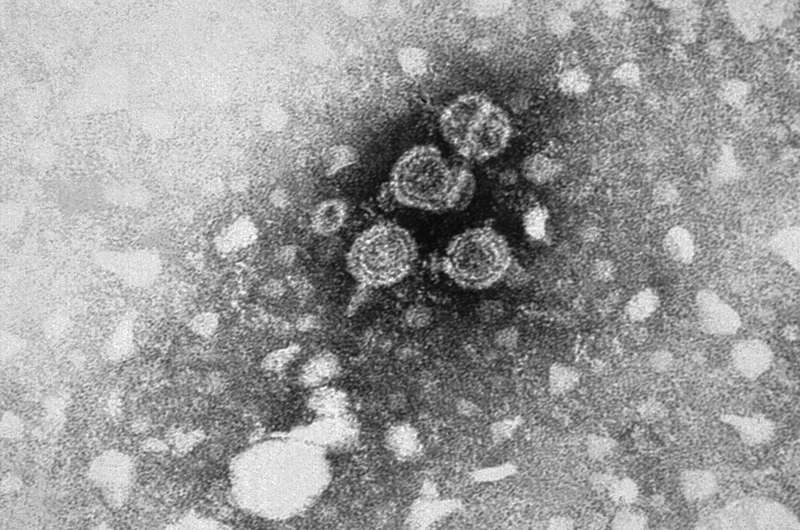Harnessing a Single Molecule to Replicate Exercise's Health Benefits

Researchers have identified betaine, a kidney-produced molecule enhanced by exercise, as a powerful agent capable of mimicking many health benefits of regular physical activity, opening new avenues for anti-aging interventions.
Recent research conducted by Capital Medical University in collaboration with the Chinese Academy of Sciences has identified betaine, a molecule naturally produced in the kidney and elevated through sustained physical activity, as a potent agent capable of mimicking many health benefits associated with exercise. This discovery offers promising avenues for developing interventions aimed at promoting healthy aging.
Exercise is widely recognized for its positive impacts on cardiovascular, metabolic, and neurological health, with improvements observed in immune function, insulin sensitivity, tissue regeneration, and delayed aging processes. However, understanding the precise molecular mechanisms behind these effects has been challenging, mainly due to the focus on isolated tissues or single biomarkers.
In a comprehensive multi-omics study published in Cell, researchers analyzed the physiological responses to acute and long-term exercise in healthy young men. Participants underwent a baseline period of minimal activity, a single 5-kilometer run, and then 25 days of daily running, with blood and fecal samples collected at various intervals.
Acute exercise triggered inflammation, marked by increased interleukin-6 and metabolic stress indicators such as elevated non-esterified fatty acids and bile acids. Long-term training induced a reduction in pro-inflammatory cytokines like TNF-α, while antioxidant enzymes increased. Notably, circulating levels of betaine rose significantly during sustained exercise. Experiments in mice revealed that kidney biosynthesis is the primary source of this increase, with betaine accumulating in renal tissues after treadmill training.
Further laboratory analyses demonstrated that betaine inhibits TANK-binding kinase 1 (TBK1), a key regulator of inflammation and cellular aging. In vitro studies showed that betaine suppresses TBK1 autophosphorylation, leading to decreased activation of inflammatory pathways involving IRF3 and NF-κB. When tested on human immune and endothelial cells, betaine reduced the expression of inflammatory mediators such as TNF-α and IL-6.
In aging mice, betaine supplementation resulted in decreased tissue fibrosis, lower senescence markers, enhanced muscle function, and fewer depression-like behaviors. Transcriptomic analyses of kidney tissues confirmed downregulation of genes linked to inflammation and aging.
These findings suggest that dietary betaine could serve as an exercise mimetic, providing systemic health benefits without physical activity. Such a strategy holds particular promise for individuals unable to engage in regular exercise, potentially aiding in healthier aging and reducing chronic disease risk. However, researchers caution that further studies are needed to confirm safety and efficacy across diverse populations, especially among older adults.
In conclusion, targeting pathways modulated by exercise, like increasing betaine levels, offers a novel approach to enhancing healthspan and managing age-related decline. This research opens the door to innovative treatments that could replicate the benefits of physical activity through nutritional or pharmacological means, with ongoing investigations required to translate these findings into clinical applications.
Stay Updated with Mia's Feed
Get the latest health & wellness insights delivered straight to your inbox.
Related Articles
First Clinical Trial Launches for Therapeutic Hepatitis B Vaccine
A groundbreaking therapeutic vaccine for chronic hepatitis B has entered human clinical trials, promising a potential new treatment to cure the disease and improve global health outcomes. Developed by researchers at the Technical University Munich, TherVacB aims to activate the immune system and target multiple strains of the virus.
The Role of PD-1 in Skin Immunity and Implications for Cancer Treatments
New findings reveal PD-1's vital role in skin immune memory formation, impacting cancer immunotherapy approaches and side effect management.
New Study Highlights Severe Health and Economic Effects of Medicaid Policy Changes in 2025
A comprehensive study forecasts significant health and economic setbacks resulting from Medicaid policy changes in 2025, highlighting risks for vulnerable communities and the healthcare system nationwide.
Impact of Smoking and Biological Sex on Healthy Bladder Tissue and Cancer Risk
New research reveals how smoking and biological sex influence healthy bladder tissue evolution, uncovering early markers of bladder cancer risk and opening pathways for improved prevention and early detection.



